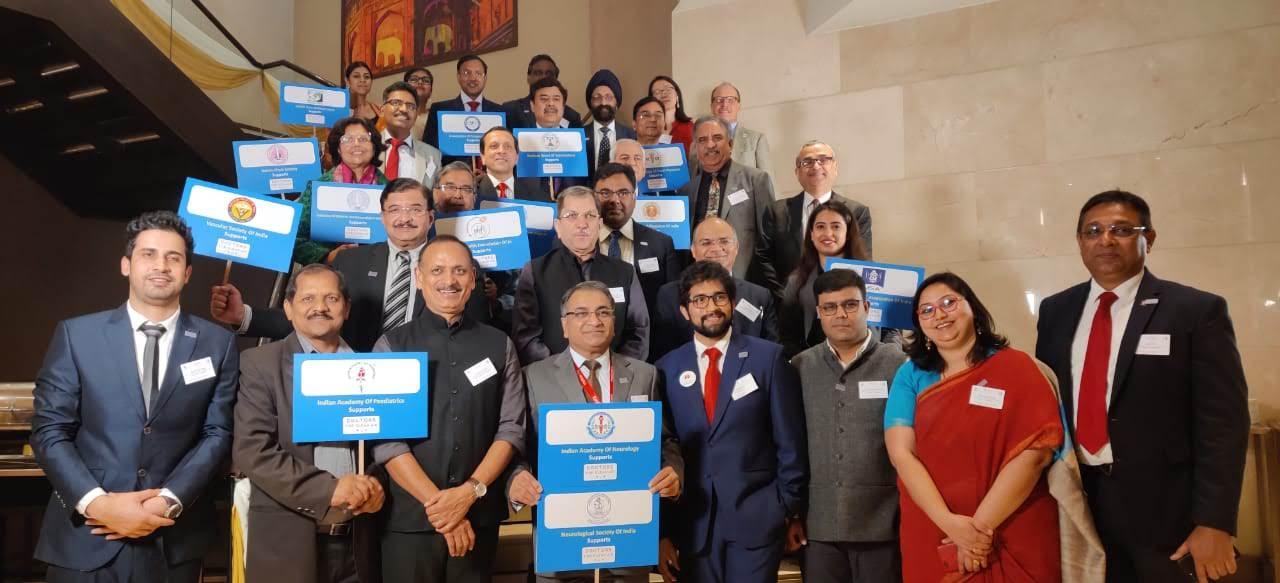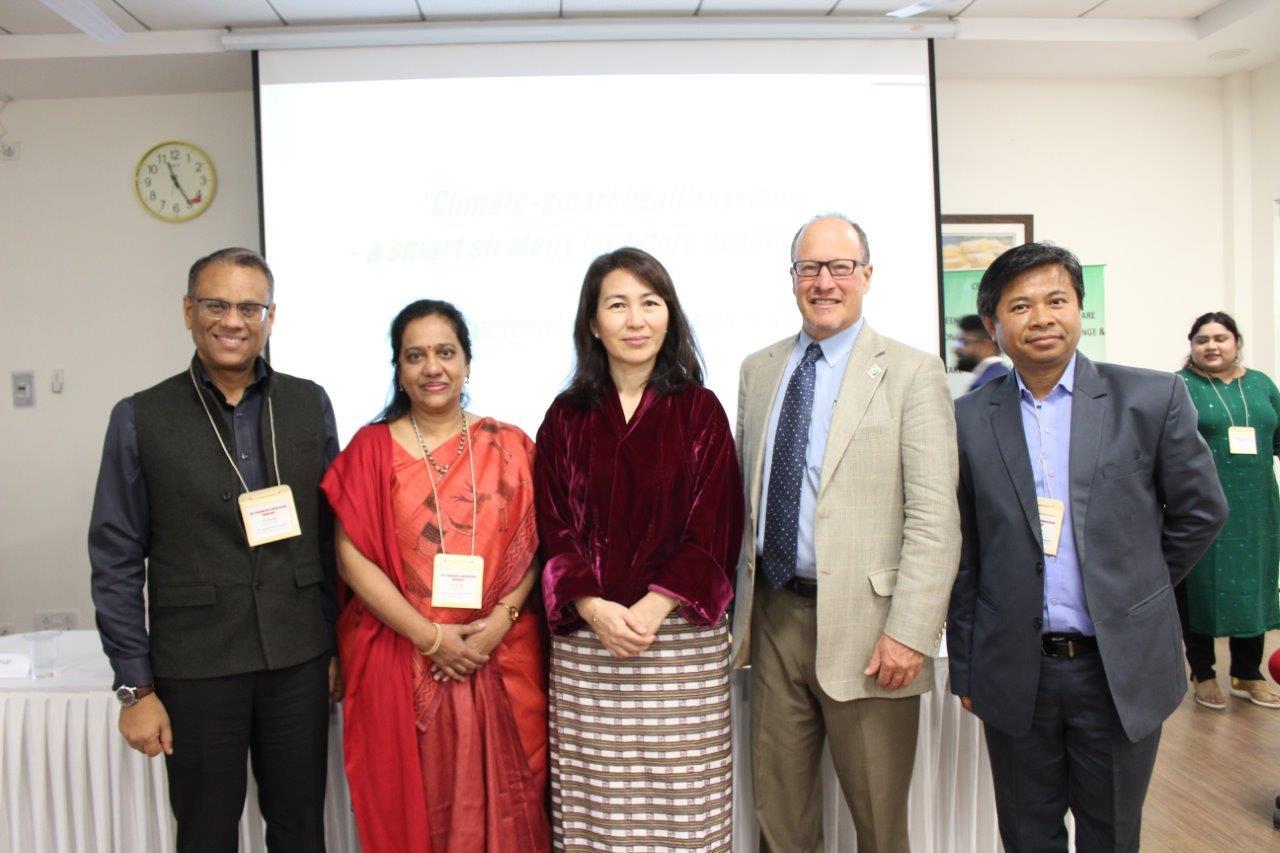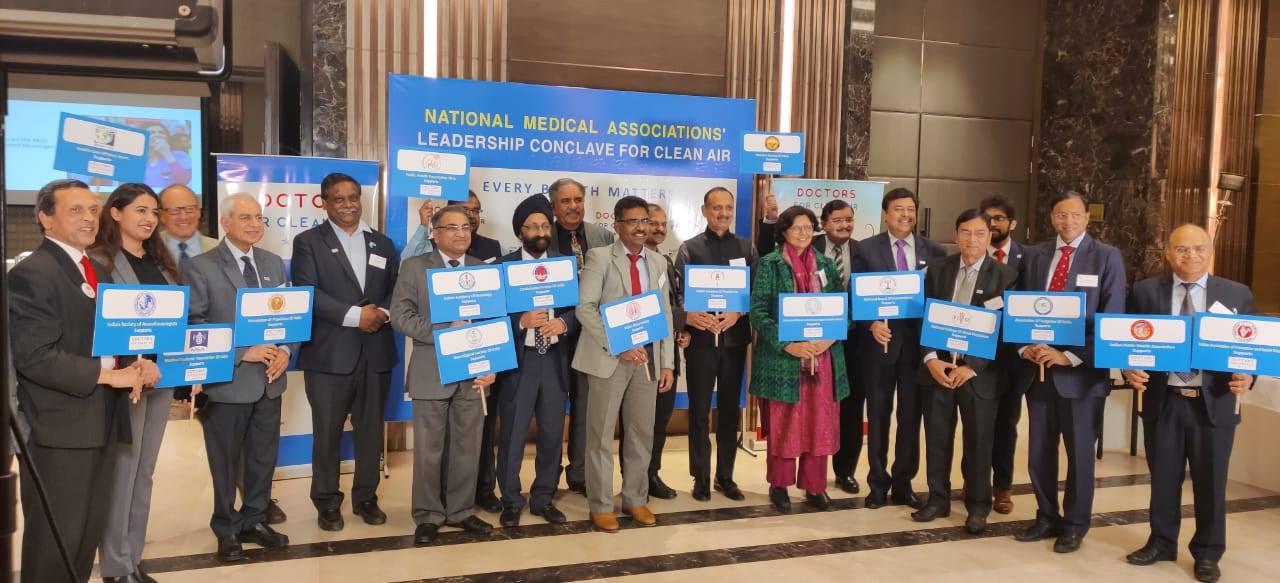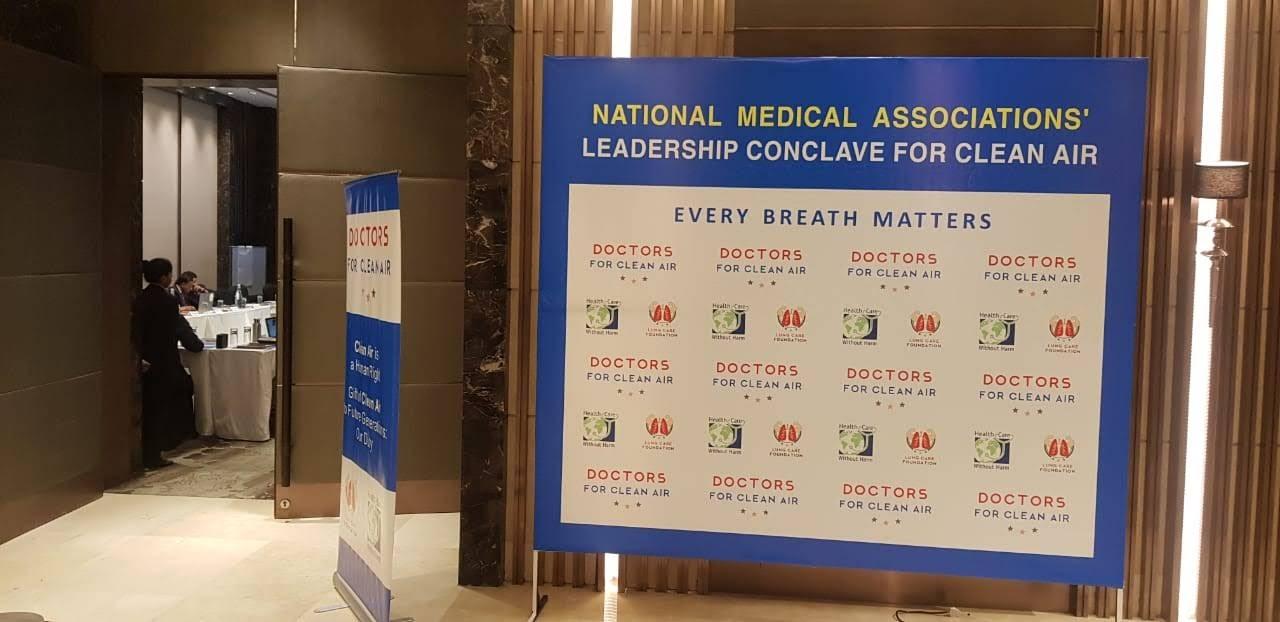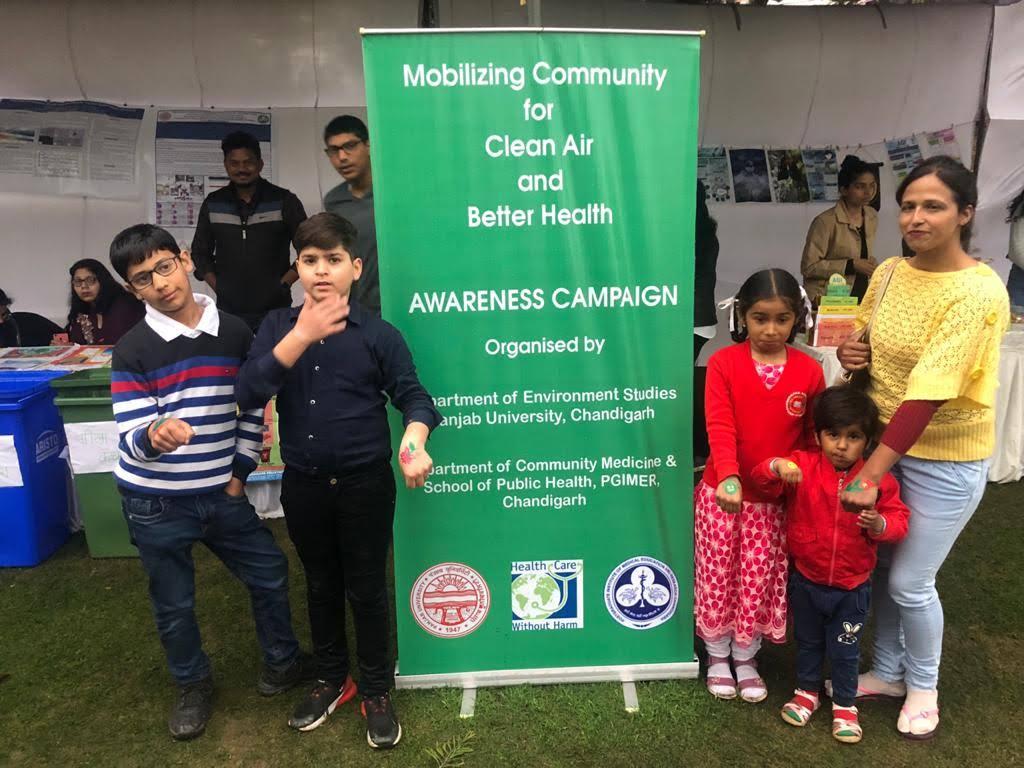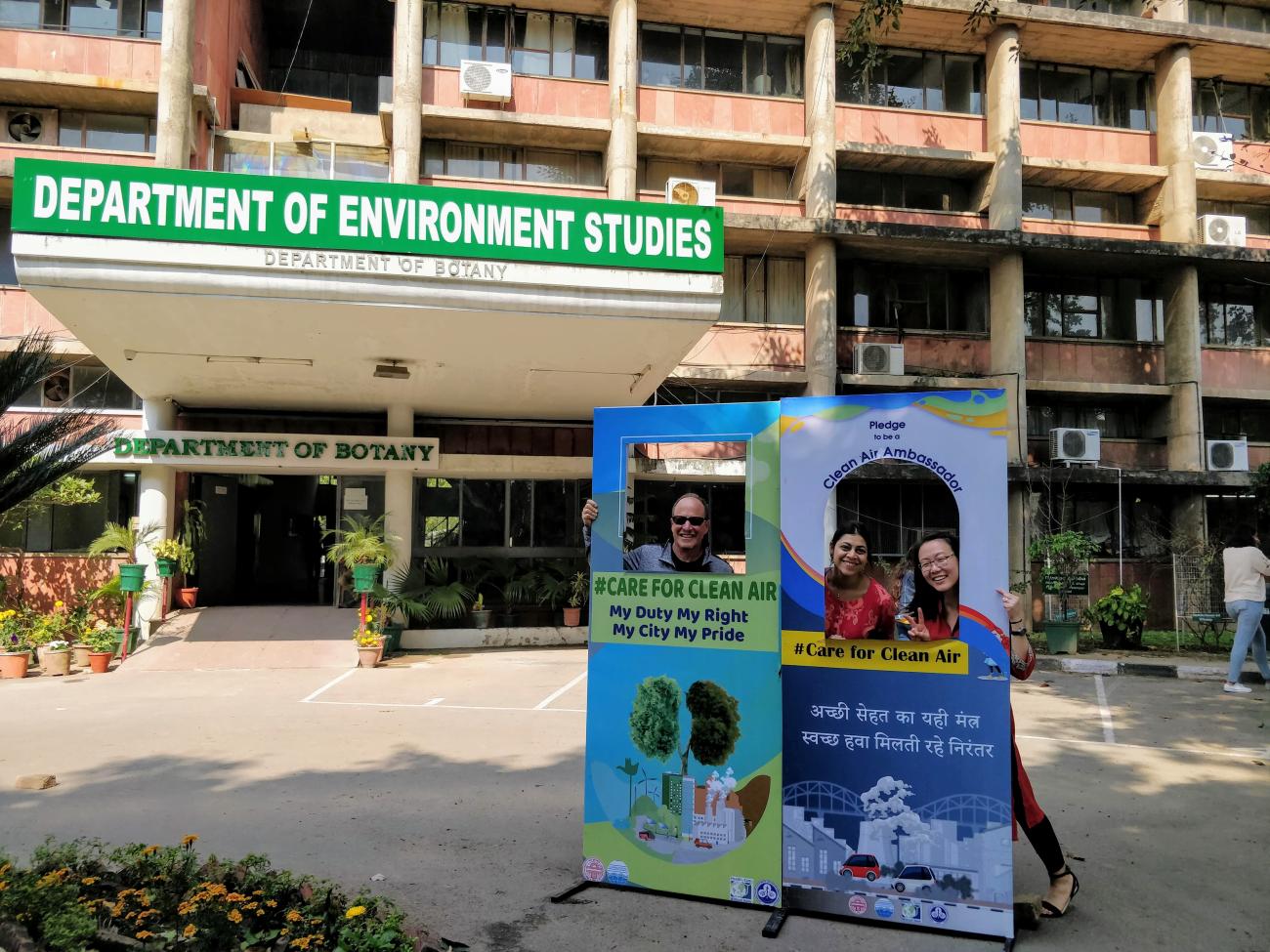Story by Tanvi Ajmera (India Projects Manager at Health Care Without Harm)
Health Care Without Harm’s initiatives on air pollution and climate change have entered a time of dynamic growth around the world, as evidenced by our collaborative work in India. On a recent visit to India, Health Care Without Harm’s global team participated in three key activities organized by our partners that represented significant advances in the work in terms of scale and opportunity – at the central and state government level, with diverse actors in the health sector, and at the local and community level across the country.
These convenings covered a range of topics: tackling rising health challenges due to air pollution, developing climate resilient health facilities, and driving the health conversation into environment policy and vice versa, to name a few.
Advancing Green and Climate Resilient Health Care
On February 21 our partner Public Health Foundation of India (PHFI) conducted a Centre of Excellence Stakeholder Consultation Workshop for India’s National Program on Climate Change and Human Health (NPCCHH), in partnership with the India Ministry of Health and Family Welfare’s National Health Systems Resource Center (NHSRC).
As a Centre of Excellence for ‘Green and Climate Resilient Healthcare’, PHFI’s main objective of the workshop was to deliberate on the framework and implementation strategies for government directed state-specific action plans toward climate mitigation, adaptation, and resilience in the Indian health care sector.
Discussions centered around: climate preparedness and adaption of health care systems in India, decarbonizing and transitioning to sustainable health care delivery, creating climate-smart health infrastructure, energy efficient buildings and equipment, leadership, and climate financing.
Collaboration across various government ministries was apparent with the National Institute of Health and Family Welfare offering space for this gathering. Participating ministries and organizations made several important contributions, including:
- Representing the National Centre for Disease Control, Dr. Aakash Shrivastava clearly signaled his agency’s leadership by discussing the role of the national health missions, strengthening health systems to make them resilient to the impact of disasters and climate change, and pushing for a green health sector;
- Mahesh Rajasekar from the National Institute of Urban Affairs spoke about climate smart city assessment;
- Rohit Wadhwa from the Bureau of Energy Efficiency, Ministry of Power, spoke about an efficient building materials directory that can help with retrofitting around health infrastructure that is already in place;
- Kiran Ghosh from The Energy and Resources Institute (TERI) discussed integrated approaches to climate resilience including sustainability integration in social housing;
- Ms. Payden from the World Health Organization (WHO) India office spoke about the opportunity for health care to decarbonize and contribute to national climate policy and commitments, and the need to change the conversation around climate change to focus on human health, especially the shifting burden of disease and major health effects;
- Health Care Without Harm’s Josh Karliner shared HCWH’s global initiatives and highlighted the need for the health sector to play a leading role in mitigation and resilience, and to collaborate at multiple scales from the community level to the WHO;
- Huda Jaffer from SELCO Foundation spoke about the opportunity for affordable, reliable, sustainable energy access to support health and well-being for all (“SDG7 for SDG3”), and presented her organization’s pioneering of joint energy and health audits in low-resource settings.
From L to R: Dr. Aakash Shrivastava (National Centre for Disease Control), Dr. Poornima Prabhakaran (Public Health Foundation of India), Ms. Payden (WHO India), Mr. Josh Karliner (Health Care Without Harm), Dr. Rameshwar (National Centre for Disease Control)
National Medical Associations: Sleeping Giants Waking to the Air Pollution and Climate Crisis
On February 24, Lung Care Foundation (another Health Care Without Harm partner in India) organized a Leadership Conclave for Clean Air with the heads of 18 National Medical Associations—such as Indian Academy of Pediatrics, Cardiology Society of India, Association of Surgeons of India, and others. In this focused small group discussion, participants shared their national associations’ leadership initiatives and brainstormed unique ways in which they could build a common action agenda toward reducing air pollution.
This gathering of not only individual doctors, but leaders of national medical associations representing over 180,000 health professionals across the country, represented a significant milestone for the Doctors for Clean Air initiative, co-led by Lung Care Foundation and Health Care Without Harm. The commitment of these large associations to, for example, build their members’ capacity to educate patients about air pollution health risks and mitigation measures, or participate in local and national policy dialogues on clean air, can have large-scale ripple effects to tip the health sector towards proactive engagement on air pollution and climate change.
Since December 2018 when Doctors for Clean Air launched, doctors led by Dr. Arvind Kumar (a renowned chest surgeon and Managing Trustee of Lung Care Foundation) have been coming together to educate and advocate for better air quality in their communities after seeing an alarming increase in poor health due to air pollution.
Some highlights from this meeting included the push for doctors to be the ‘motivated motivators’ by Dr. Arvind Kumar, because they see the effect of air pollution first hand and have the ability to influence patients, the general public, policy makers, and local leaders and administrators to understand the gravity of the situation and work towards finding local solutions. Another highlight was having media representation by the managing editor (Chetan Bhattacharjee) of a popular Indian news channel - NDTV, who emphasized how doctors can effectively use the media to amplify their messaging around health and air pollution. The various medical associations then shared their achievements from 2019 and continued to pledge to take action in 2020.
Josh Karliner and Jennifer Wang, from Health Care Without Harm, shared success stories featuring health professionals around the world fighting the battle against air pollution and climate change. They referred to doctors as “sleeping giants” who can truly effect change and are now awakening en-masse to tackle this urgent health risk.
Dr. K. Srinath Reddy, President – Public Health Foundation of India, gave a rousing speech encouraging these medical associations to sharpen their leadership role by making simple, clear demands to decision-makers, monitoring actions taken, and building a public health movement.
Community Outreach for Clean Air in Chandigarh
Our third partner in India, Healthy Energy Initiative India, has partnered with the Postgraduate Institute of Medical Education and Research in Chandigarh (PGI), a Centre of Excellence for Air Pollution and Climate Change under the National Program on Climate Change and Human Health, and with Panjab University to mobilize air pollution awareness and action across the region through air pollution monitoring, health impact assessments, and community health clinics. PGI and Panjab University, which are also nodal agencies for western India under the National Clean Air Program (NCAP), have been organizing clean air campaigns across the city, at various community events to raise awareness among the public on health impacts of air pollution. Most recently (as seen in pictures), the Department of Environment Studies (Panjab University) and the School of Public Health (PGI) hosted an interactive display at the popular Rose Festival in Chandigarh to create awareness around air pollution and the need for clean air. The stall saw a total footfall of more than 100,000 people and was visited by judges and members of the National Green Tribunal, children, families, and other concerned community members, sparking increased conversation around health and pollution in Chandigarh.
L to R: HCWH Global Team – Josh Karliner, Tanvi Ajmera, Jennifer Wang
Each of these activities, while sharing the same message around air pollution, climate change, and their dangerous effects on human health, contrasted in that they brought varying perspective and representation from across the country. These partnerships highlight Health Care Without Harm’s widespread program outreach and engagement – with government officials, non-profits, medical professionals and students, and everyday people. This diversity is essential in creating unanimous messaging around air pollution and climate change in a country as vast and diverse as India.
